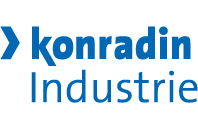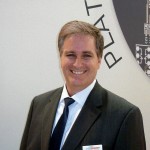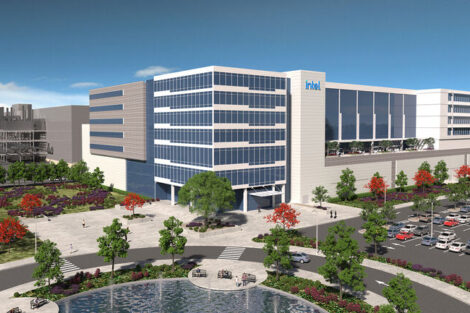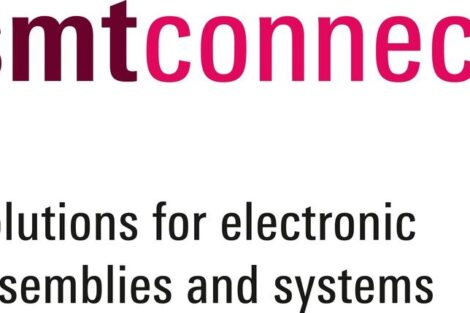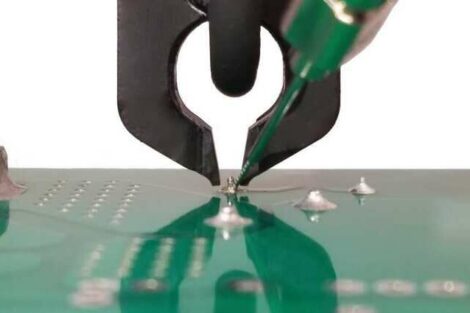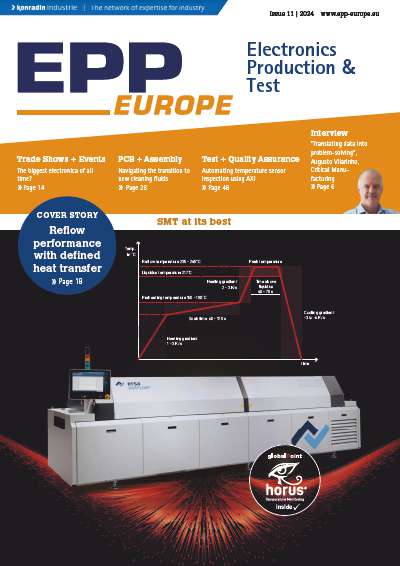Christian Enzmann GmbH supports the electronics industry in verifying and manufacturing designs for the ever more complex demands of today’s and tomorrow’s markets. Since 1987, Enzmann is the sole distribution partner for large-volume production in Germany, Austria and several Eastern European countries of Thai KCE Electronics Public Company Ltd. For the benefit of its customers, Enzmann strives to expand into new technologies and markets. EPP Europe talked to Donald J. Draut, General Manager at Enzmann, about the future plans for the company.
Mr. Draut, can you tell me something about the history of Christian Enzmann, where you came from, where you are and where you’re going?
The company was founded by Christian Enzmann in Geretsried, Bavaria, in 1965. We are now one of the longest established manufacturers of Printed Circuit Boards in Germany and a strong reputation for flexibility, precision and quality of both product and service are helping us remain at the forefront of PCB prototyping. Today we have a combined sales turnover in the region of 50 million Euros and have sixty five employees.
As a company, Enzmann never had ambitions of being the biggest manufacturer. We have concentrated on quality of manufacturing, technical support and customer service. We carefully target our markets and, within them, through careful investment, aim to be the best that we can be. Back in 2000, for example, we were one of the first to bring in impedance controlled PCB’s. Today we help our customers achieve the best possible impedance-controlled designs with design support during layout and precise tolerances in manufacturing. The ever higher-precision processes clearly require more precise drilling, so in 2001 we added X-Ray drilling for the ultra-precise indexing of multilayer boards. You have to continually listen to your clients and react. In 2004, we moved to adapterless electrical testing to speed up prototyping and improve quality. The last couple of years have again seen a systematic program of investment in machinery and training. The market moves on and you continually have to invest to survive.
Enzmann is now run by Christian’s son Enrico. Very early he saw the value in forging links with quality Asian producers for large volume manufacture. In 1987 he established a partnership with Thailand’s KCE, one of the largest and most respected Asian producers of PCBs. In 2001 they were granted ‚preferred supplier‘ status by Mannesman VDO, followed by Siemens in 2003. Enzmann holds exclusive distribution for KCE in Germany, Austria and a number of Eastern European markets. What this means is that we do the prototyping and small volumes here in Germany and when a client design is ready for volume manufacture we can pass the baton onto KCE. The client doesn’t have to feel that they’re leaping into the void because they know that we can leverage our twenty year relationship with KCE in their favour. If there were ever any last minute changes to designs or glitches that only became apparent in production then they will sort them, whatever the order quantity, because of our relationship and client base. This means that the customer can take advantage of a seamless package from design verification to prototyping all the way to mass production.
Clearly, this arrangement allows us to stay relatively small, whilst the sales revenues can be invested back into the business to keep us where we need to be from a technology standpoint. The rate of obsolescence forces companies to continually invest, yet in the current economic climate this puts huge stress on manufacturers. Being debt free and still a family business, we’re perhaps in the fortunate position of being able to react to change quicker than a lot of our competitors. Now, for instance, we’ve brought in a tailor made ERP system which is shortening turn-arounds and giving instantaneous visibility on order status, all of which helps our customers.
What is in your product portfolio?
We’re well established in the automotive and heavy industry sectors as a reliable partner for quick turn business and prototyping. We’re aiming to increase our presence in medical electronics and aerospace and in order to achieve this we’re making big investments in plant and machinery. We need to keep up with the demand for ever finer structures and a future which will be dominated by RF designs. Over the last eighteen months we’ve upgraded heavily on the production side. One of the more recent acquisitions is a process-optimized Stripping, Etching and Stripping (SES) -line which has significantly improved etching quality. We can now attain track gap widths of 100 µm in 70 µm base copper and 50 µm in 18 µm base copper.
Who manufactures this machine?
The manufacturer of this SES-line is Occleppo in Italy. They make excellent machinery and we’ve got a good, long term relationship with them as a supplier. The machine enables us to build finer structures and thinner core PCBs very ecologically. Our responsibility for the environment is something that we take very seriously. Enzmann is located in Geretsried near Munich. We are beautifully located next to a nature reserve, so we need to be careful that what we are putting back into the environment is just as clean as, or cleaner than, when we took it out. PCB manufacturing uses large quantities of water. Last year we replaced our whole water management treatment systems and with that we’ve been able to reduce our water consumption by 40 %. The SES-line has also enabled us to reduce our chemical waste by 50 %, so a significant by-product of our technological advancement has been to make us a cleaner company. Environmental stewardship isn’t a new concern. As early as 1999 we set environmental guidelines for our activities and worked hand in hand with local companies and communities to increase levels of environmental awareness and responsibility. So if by modernizing we also achieve efficiencies such as falling electricity consumption then clearly we’re happy.
All of this has taken place in a period of increased turnover, both through our own prototyping and through our KCE representation. We have been working to the 20 / 80 principle with about 80 % of our turnover coming through KCE sales and the remainder from our own manufacture. This suits us as it balances the production to where it is most effective for us and most beneficial to the customer.
What is the issue with size?
Across Europe we have seen that PCB manufacturers that are too small have gone to the wall, partly due to the constant need to invest. Equally, if you are too big then you need to be competing on the high volume side with the Asian producers, something which many manufacturers have found increasingly difficult to do. We feel that we have the right model in terms of our size and our partnership that enables us to meet our customers‘ needs and look positively towards the future.
We’re still a family business and we are able to retain the ideals and sense of community that has made us successful. The average time that our personnel stay with us is 15 years, which says a lot, both in terms of Enzmann as a place to work and also of the experience that we can offer. Our people know about PCBs. This knowledge gives them the confidence to find client solutions and the ability to understand not just what they are making, but also its implications. We also realize that there’s little point in investing in machinery if you don’t invest properly in the people that you expect to use it.
So there’s still a future for European PCB manufacturing?
Yes, absolutely, but the quality has to be there. A lot of our clients appreciate being able to get on the phone to someone in their own time zone and discuss their needs, knowing that they have a business partner that they can rely on who understands the sort of pressures that they are under. In terms of R&D and specialist prototyping, people are less willing to cut corners. As long as we retain the qualitative advantage in this area we will retain our customers.
Did you launch a new product at the show?
We’re in a reactionary business. We are always a split second behind the developments of our customers. That’s why we need to keep strong relationships with the technical guys and the design offices. We need to know what they are looking at, what they are working towards, so that when they come to us we are able to give them what they need. For example, we’ve looked a lot at PCBs with heat sinks. This isn’t a new technology in itself but there are many new applications for it. The need to take the heat out of a PCB once all the components are in place is met by the heat sink. This is something that we’ve been providing for a certain client for ten years now but we’re finding that other customers are now interested in the technology.
Is this for the automotive branch?
Yes, it is. And it is also an example of how we work together with our mass volume partner. Our production manager and our technical manager went over to KCE and stayed there for a couple of weeks after we’d developed it and made the prototypes and oversaw its transition into mass production.
What do you manufacture in Germany?
We do a lot of the high tech work here. We can go up to 24 layers with a board and this technology is something that is not offered across the market. Major chip manufacturers come to us to develop and build testing boards to improve the design & functionality of their chips. Not everyone can offer this service, it’s an area where Enzmann is ahead of the competition. What we want to do is to expand our core business and offer our experience, technology and client support to other sectors, notably medical electronics and aerospace.
Are you afraid of the current automotive crisis?
No, I’m not. Perhaps I’m just hopelessly optimistic, like all Americans. Though clearly serious, I see the present downturn as a correction, part of the cycle. We always have ups and downs, and, of course, these are hard times for manufacturing. My belief is that companies are not going to stop developing, there is always going to be something coming out tomorrow, next week or next year, that you and I would like to have. We’ve become a mobile society, we’ve become a society used to comforts, and the more comforts we have the more we like them and the more we want them. This development is still going on. Although we have seen a downturn in the mass volume, we still see good business in prototypes and samples. (jau)
EPP Europe 517
Share:
